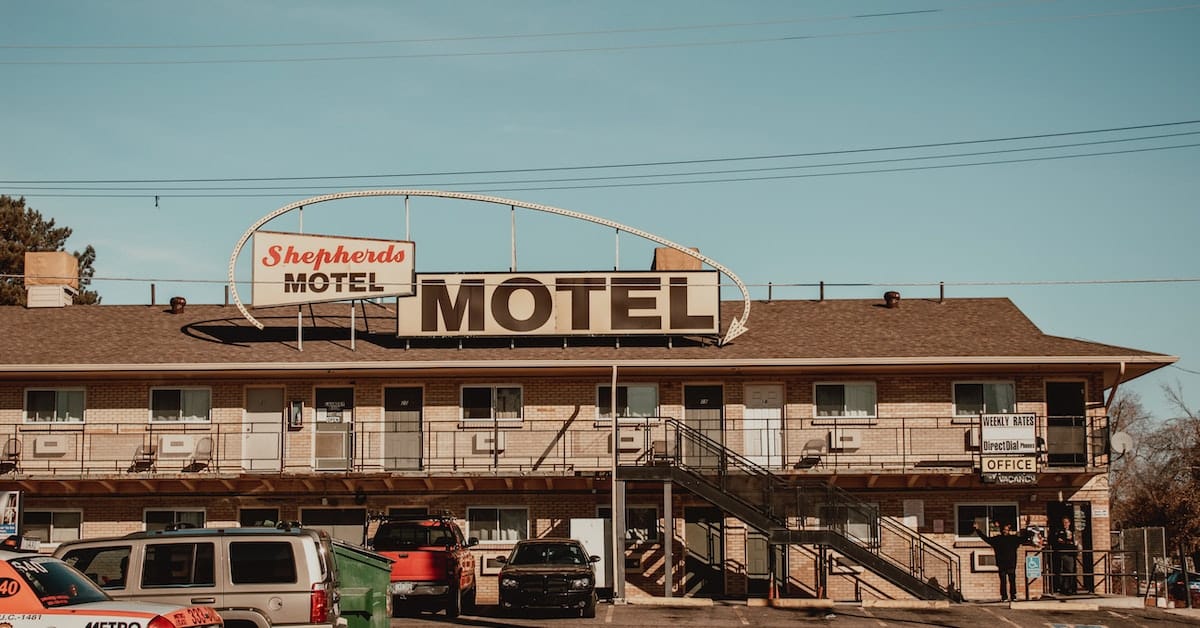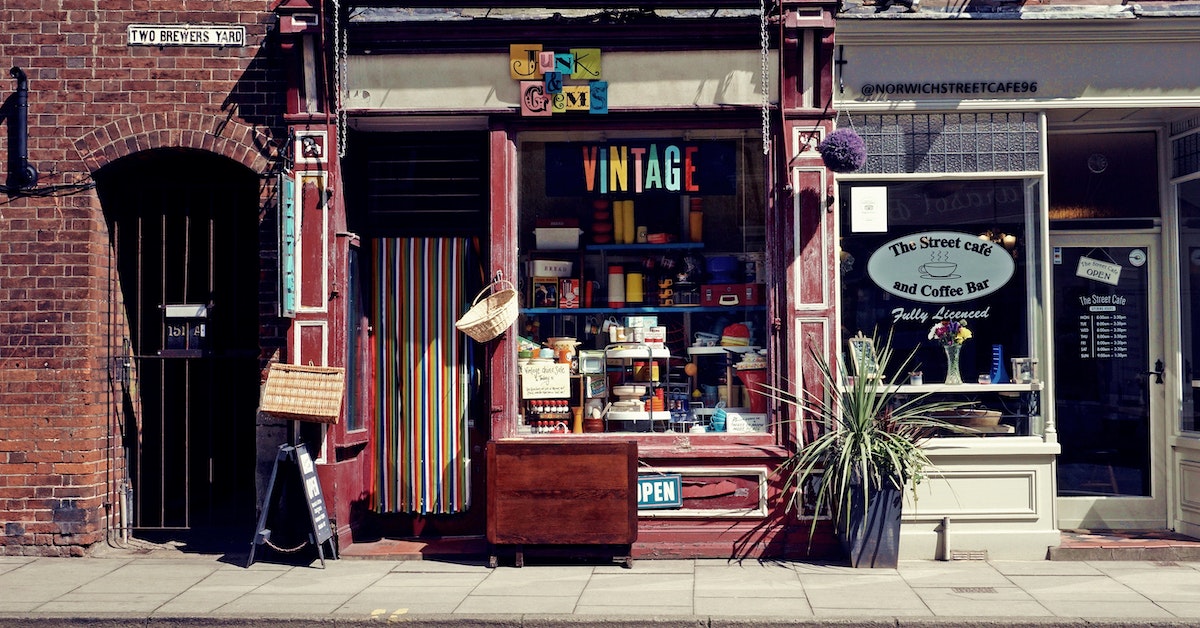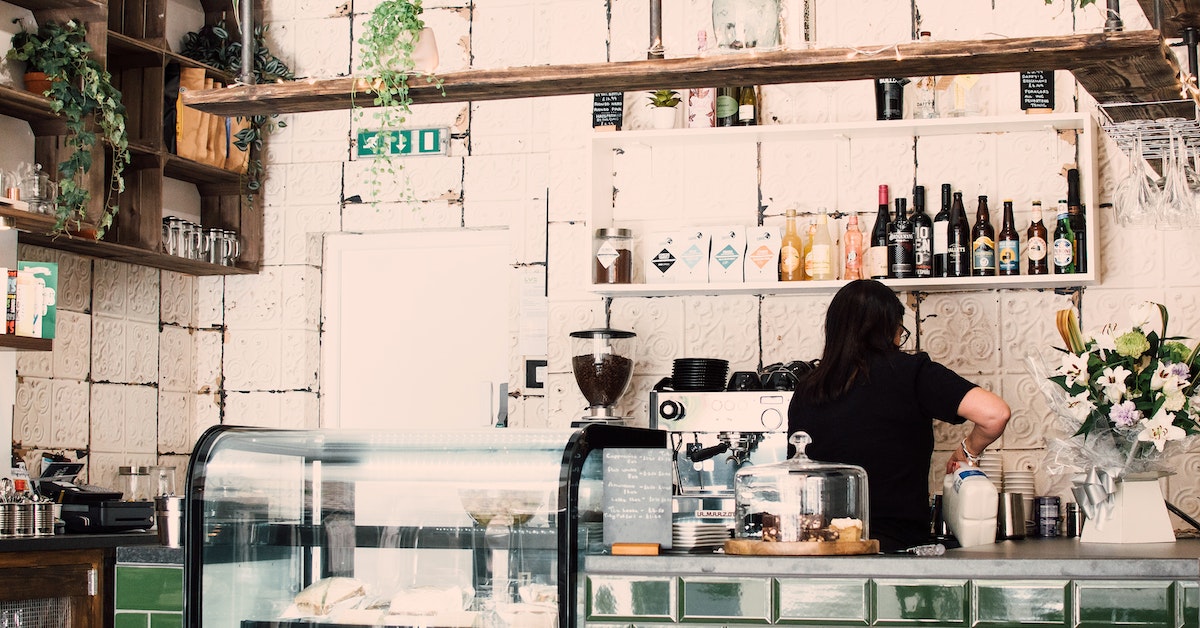One of the most appealing aspects of investing in commercial real estate is the earning potential– often with an annual return between 6% and 12%. You have to spend money to make money, though, and commercial properties tend to be more expensive and more difficult to obtain a loan for. If you’re deadset on buying commercial, you’ll want to stick with us while we look at how to buy commercial property with no money down.
As you might imagine, making a 0% down payment on a piece of commercial real estate requires some creativity. The most straightforward way to become a commercial investor is to have deep pockets so that putting at least 25% down isn’t an issue.
Where there’s a will, though, there’s a way.
If you’re ready to start investing in commercial real estate but don’t have the cash for a down payment, read on to get a sense of your options.
Property that is exclusively used for business-related purposes or to provide a workspace is known as commercial real estate (CRE). In many instances, owners of commercial property lease the real estate to tenants who engage in income-generating practices.

The category of “commercial real estate” is incredibly broad, and includes everything from one smalltown storefront to an enormous shopping complex.
There are many different types of commercial real estate, which are commonly broken down into five main categories:
Everything from restaurants and warehouses to apartment buildings and healthcare facilities are considered to be commercial properties.
You might be interested in buying commercial property in order to operate your own business or as an investment. Commercial properties are typically classified into three class gradings, which are:
Buying commercial property is a different animal than buying residential real estate, so it’s worth taking the time to do your research and make sure this is an investment strategy you want to pursue.

Finding a lender for commercial property can be more difficult than for residential real estate. This is because commercial mortgages are usually considered to be riskier than residential mortgages. For the same reason, commercial loans tend to be more expensive in that they tend to come with a shorter loan term and higher interest rates.
While you can generally get a mortgage for residential property from any major bank or national mortgage lender, buying commercial property with a loan usually requires working with a local bank.
Commercial loans are also more likely to have a variable interest rate rather than a fixed rate and typically require that you put at least 25% down. However, if you have a seasoned relationship with a lender you might be able to make a smaller down payment than that.
Considering that commercial properties tend to be more expensive than residential real estate, combined with the fact that it tends to cost more money to maintain and the typical higher down payment requirements, many smaller real estate investors might feel that they are boxed out from this investment strategy.

Let’s look at some of the creative solutions out there for purchasing commercial property with no money down.
One way that you can avoid making a down payment when purchasing commercial property is by starting off with a lease prior to buying. In some cases, both the buyer and the seller can benefit.
Of course, this is likely only useful for people that intend to operate a business out of the commercial property rather than an investment style such as fixing and flipping.
When you begin by leasing a piece of real estate, you can get a sense of whether the location is right for you before you take on the full responsibilities of ownership. This can help reduce your exposure to risk overall.

From the seller’s perspective, they’ll be able to collect rent on a monthly basis which is a plus for them.
There are a number of different ways you could approach this type of scenario, but here’s an example:
If you end up deciding the property isn’t right for you, you can simply move on after having leased the space. If you do want to buy it, though, the seller usually credits a certain amount of the rent payments at the closing. This could apply to your down payment and leave you in a situation where you don’t have to bring any cash to the table.
Of course, you also have to get a lender on board with this agreement. If you are struggling to find a lender that will loan you the money for the property, you could combine this strategy with another option, such as seller financing.
If you don’t have the money for a down payment, have credit problems, are struggling to get a loan from a lender, or all of the above, seller financing is an option worth exploring.
Basically, seller financing is when the property seller finances your acquisition of the property instead of a lending institution.
While you are making loan payments to the seller, they’ll retain the mortgage and hold the note on the property.
In many cases, sellers don’t run thorough background and credit checks the same way a normal lender does, which means this can be a reasonable option for people with credit problems.
If you want to put no money down, though, you’ll most likely have to agree to an above-market purchase price or interest rate. Otherwise, the seller might not be particularly comfortable with receiving any money for the down payment.
When you approach a seller about seller financing, you’ll want to mention that they will retain the original mortgage and have the opportunity to take the property back through foreclosure if the buyer doesn’t hold up their end of the deal. That, of course, isn’t an ideal scenario, but understanding this might help the seller be more willing to entertain the idea.
It’s common for seller financing projects to have a five to seven-year balloon. This means that after a certain amount of time the remaining loan amount will be due. In order to pay off the loan, a common strategy is to refinance the property in order to make the payment.
You can also refinance the commercial property at any time during the process before the loan is due if you find better terms and are able to qualify.
You’ll typically need to confirm that the seller either doesn’t have a mortgage or that their lender allows this arrangement. If they aren’t free to finance the property, then you’ll have to find another arrangement.
Thinking about buying a foreclosed property? Make sure you read about the risks of foreclosed real estate first.
If the seller isn’t willing to take the deal with 0% down, you might find there is still a way to make the deal work. It’s possible that you could offer personal property (such as vehicles, boats, motor homes, or other valuable assets) instead of cash for the down payment. If you have skills that the seller could benefit from, such as accounting, legal services, or contractor services, you could also offer these in the place of cash.
Additionally, if the seller has debts that they are struggling to keep up with, you could offer to assume the debts in lieu of making a down payment. Since these are all fairly creative options, it’s a good idea to talk to a real estate professional before moving forward with a deal of this sort.
This is one of the best options for people that own a small business and want to purchase commercial property without a down payment.
There are some lenders out there that offer qualifying business owners a loan with 0% down. There are a number of things you’ll need in order to potentially qualify, though, which include:
As you can see, this might not be for everyone– particularly the requirement that your business occupies the majority of the property. However, if you have a small business that could use the space for a time before you use the property for investment purposes, you could start off with this type of loan and then refinance once you’ve built up enough equity. From there, you can transition the property into an investment property.
If you are interested in learning about this type of loan, you’ll want to reach out to local SBA lenders in your area.
This is one of the more creative options for buying commercial property with no money down, and you have to be careful in terms of how you approach this scenario.
First of all, you’ll want to be very clear with the lender about how you expect to make the down payment. Lenders often don’t like it when the buyer isn’t the one that is shelling out the down payment from their own pocket.
If you have a strong pre-existing relationship with the lender, though, you might find that they are willing to work with you.
Secondly, you’ll need to communicate to the seller about how it will be beneficial to them to help you with the down payment.
What normally happens in this type of scenario is that the overall purchase price is raised in order to cover this cost rather than the seller actually reaching into their own pockets to lend you a hand. In some instances, you might decide that it’s worth it to increase the price even more to incentivize the seller with more profit. Providing these types of incentivizes may be necessary because it is more complicated for the seller to engage in this kind of sale rather than a more traditional transfer of property.
One very important note: the property will still need to appraise in order for the lender to be willing to loan you the money.
If the property needs quite a bit of work, you might be able to categorize this assistance as a “repair allowance” that is credited at the time of closing.
Even if you're just contemplating going this route, it’s essential to know that transparency will be key in this type of sale. If you aren’t upfront with all parties involved you could end up finding yourself in legal trouble.
Also known as using a “subject to” contract, assuming the existing mortgage of a commercial property is a way that you can use the seller’s existing financing arrangement rather than obtaining a brand new loan.
This is a particularly good deal if the existing financing involves a lower interest rate than you could get if you took out a mortgage today.
In this arrangement, the buyer makes payments on the seller’s mortgage and, in exchange, receives title to the property. Before you get too excited, though, you’ll want to know that some mortgages have a due-on-sale clause, which means that the loan isn’t assumable.
This was a popular method of real estate acquisition during the Great Recession. Property owners that needed to move quickly and wanted relief from the expenses of ownership would allow investors to assume their mortgage so they could walk away from the property.
Only certain types of sellers will be willing to participate in this type of transaction, of course. You’ll also want to read the loan documents thoroughly and check with the lender to make sure that the loan is assumable.
Interested in assuming the mortgage for a residential property? This guide looks at how to assume a loan for residential real estate.
If you’re looking for a way to reduce the amount of money you have to put down at closing, take a look at these options.
If you don’t have the money to buy a commercial property but your network includes people with deep pockets, you could consider bringing them on board your commercial property investment plan.
Investors are always looking for an opportunity to get a return on their money. If you can prove to them that you have a good idea for a property and you’re willing to put in the sweat equity, you might find that they’re willing to hop aboard.
Of course, there is a spectrum about how much money you could put in when you work with investors in this way. If you can’t put any money in when it comes to the down payment or expenses, the investors will likely expect most of the equity. Some beginner investors still find this to be a good deal, though, because it helps offer valuable experience and starts building a solid track record. Plus, putting the deal together is quite a bit of work, and you can probably set aside a percentage of the equity for yourself.
Of course, the most straightforward way to come up with the money for a down payment is to borrow it from someone else, whether you take out a personal loan or a low-interest rate loan from a lender. You could also use a home equity loan or another line of credit.
In some cases, a real estate broker might be willing to let you “borrow” their commission to fund the down payment for a short period of time.
Thinking about buying residential property in the US? Check out our list of the best places to buy rental property.
This is a pretty creative option that won’t work in all circumstances, but it’s worth mentioning. If you are able to find a tenant that is willing to sign a lease for use of a property before the closing, your lenders might be willing to value the property based on the income you’ll be receiving as soon as you close.
Incorporating this information the lender might offer you a more appealing loan-to-cost ratio. This means that you could potentially have to front less money in the form of a down payment at closing.
There are three broad categories for commercial real estate loans, which are:
Let’s look at some of the most common types of commercial real estate loans for investment to help you understand your options for financing a commercial property.
One of the most frequently used options when it comes to commercial real estate loans are conventional commercial loans. While they’re similar to the type of loan you’d get for your primary residence, the terms are often less favorable.
The down payment required is usually at least 25% in order to obtain a fixed-rate mortgage with a loan term of between five and thirty years. It’s common for commercial loans to only have five-ten-year terms rather than twenty or thirty, though the latter is certainly possible.
The SBA 7(a) loan is one of two types of SBA loans commonly used by commercial investors. Backed by the Small Business Administration, the SBA 7(a) loan helps businesses buy or refinance commercial properties that are owner-occupied.
Loan amounts go up to $5 million and you usually have to put down at least 10% of the purchase price as a down payment. The borrower also has to have been in business for at least three years and needs to have a credit score of at least 680. Since the real estate needs to be at least 51% owner-occupied, this can be an appealing option for investors that have a use for a property for their own business in addition to being able to have other tenants.
These are very similar to the SBA 7(a) loans except there isn’t a maximum loan amount. Regardless of how big the deal is, these loans can be used for up to 90% of the commercial property purchase price.
When using this type of loan to buy commercial property, the loan terms are usually 20 years. Just like the previously discussed SBA loan, at least 51% of the property needs to be occupied by the owner.
There are two sides to every coin, and commercial investing certainly has its appealing advantages and disincentivizing drawbacks.
Why bother investing in commercial real estate instead of residential? Let’s look at some of the notable pros of going commercial.
The annual return of commercial properties tends to be between 6% and 12% of the purchase price depending on a number of factors (including the current economy, the location, etc.) Compared to the typical return for a single-family rental– between 1% and 4% at best– this is one of the most appealing aspects of choosing commercial over a residential property for investment purposes.
When you rent out commercial space to a business, they usually have a vested interest in maintaining the storefront because it reflects on their business. Because both you and your tenant are aligned in your interests in this way, you might find that commercial tenants are more invested in maintaining and improving the quality of the property versus residential tenants.
Renting to residential tenants can cause a lot of problems– just talk to literally any landlord that’s been in the game for a few years. When you rent to a business, though, you often find that the relationship is much more professional from the get-go.
When you rent out an apartment, you’re on call 24/7 unless you hire out property management. Most businesses, though, are only open during the day, which means that you’ll usually only get calls from the tenant during the day. Of course, the exception is emergency calls.
A business is also much more likely to be outfitted with alarm systems and cameras, which means that you are better protected if there is a break-in or other unfortunate happening in the middle of the night.
There aren’t as many laws that govern commercial leases as there are residential leases. This means that you have a lot more elbow room when creating a lease that works for both parties.
Evaluating the price of commercial property is usually easier than for residential real estate. This is because you can determine what the price should be based on the income statement of the current owner. Residential properties– particularly single-family homes– are much more difficult to price objectively and can be subjective to emotional pricing.
There are definitely some downsides to investing in commercial real estate that you’ll want to know about before jumping in the pool.
For the risk-averse that are interested in investing in real estate, residential properties might be a better choice. Properties that are used commercially tend to have a lot more people on the property day in and day out, which means there’s a lot more opportunity for damage to be done or for someone to get injured. The probability that you will deal with an instance like this definitely goes up when you choose commercial over residential.
Of course, there are also the events of recent years to note here. With the coronavirus pandemic transitioning many in-office jobs to remote positions, you can imagine that commercial property owners suffered greatly during this time.
There tends to be more hands-on management when you own commercial property rather than residential. You’ll likely have to deal with more leases, property that gets a lot more use and requires more maintenance, and public safety concerns.
It can be hard to get your foot in the door when it comes to commercial investing, partially because you usually need more capital to buy commercial property rather than residential. On top of that, you have to consider the maintenance and repair costs for a high-use, large commercial building, and the utility costs.
Most people will require professional help when it comes to owning and operating commercial property. It’s essential to consider the cost of property management when considering your budget for a commercial investment.
Residential real estate investment is usually a good place to begin when it comes to real estate investing. Not only is the cost of entry more accessible, but there’s also usually less red tape, less tenant turnover, and less risk. Considering the fact that everyone and their uncle has been talking about a looming recession, it’s also worth noting that residential real estate usually does better in economic crises.
That being said, there are some serious benefits to commercial investment over residential. The most notable of these is higher returns, but additional perks include longer lease terms, more ability to increase value, and the ability to find qualified tenants.
For newbies, commercial real estate can be a lot to take on, and there’s nothing wrong with starting off with residential properties to get your feet wet, gain experience, and build up capital.
Are you comparing rental properties right now and trying to choose the best rental for your purposes? If so, be sure to use our advanced rental property calculators.
We encourage you to share this article on Twitter and Facebook. Just click those two links - you'll see why.
It's important to share the news to spread the truth. Most people won't.